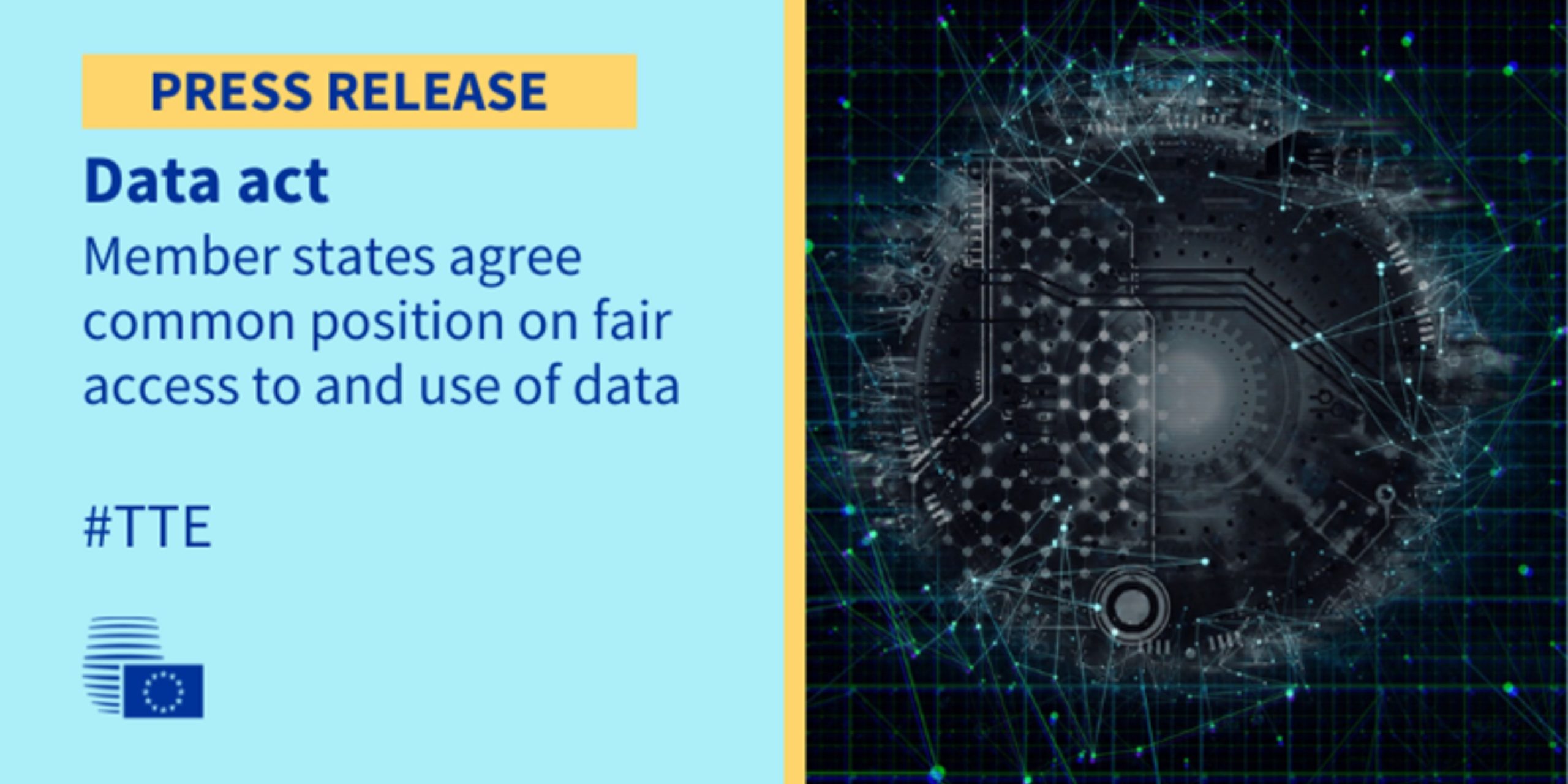The Commission welcomes the political agreement reached between the European Parliament and the Council of the EU, on the European Data Act, proposed by the Commission in February 2022.
The Internet of Things (IoT) revolution fuels exponential growth with projected data volume set to skyrocket in the coming years. A significant amount of industrial data remains unused and brimming with unrealised possibilities.
The Data Act aims to boost the EU’s data economy by unlocking industrial data, optimising its accessibility and use, and fostering a competitive and reliable European cloud market. It seeks to ensure that the benefits of the digital revolution are shared by everyone.
Concretely, the Data Act includes:
- Measures that enable users of connected devices to access the data generated by these devices and by services related to these devices. Users will be able to share such data with third parties, boosting aftermarket services and innovation. Simultaneously, manufacturers remain incentivised to invest in high-quality data generation while their trade secrets remain protected.
- Measures to provide protection from unfair contractual terms that are unilaterally imposed. These aim to safeguard EU companies from unjust agreements, fostering fair negotiations and enabling SMEs to participate more confidently in the digital marketplace.
- Mechanisms for public sector bodies to access and use data held by the private sector in cases of public emergencies such as floods and wildfires, or when implementing a legal mandate where the required data is not readily available through other means.
- New rules that grant customers the freedom to switch between various cloud data-processing service providers. These rules aim to promote competition and choice in the market while preventing vendor lock-in. Additionally, the Data Act includes safeguards against unlawful data transfers, ensuring a more reliable and secure data-processing environment.
- Measures to promote the development of interoperability standards for data-sharing and data processing, in line with the EU Standardisation Strategy.
Next Steps
The political agreement reached by the European Parliament and the Council is now subject to formal approval by the two co-legislators. Once adopted, the Data Act will enter into force on the 20th day following its publication in the Official Journal and will become applicable 20 months after the entry into force.
Background
The Data Act complements the Data Governance Act of November 2020 by clarifying who can create value from data and under which conditions. It stems from the European strategy for data, announced in February 2020, which aims to position the EU as a frontrunner in the era of our data-driven society.
Collectively, these initiatives will establish a unified market allowing for data to flow freely within the European Union and across sectors. This will benefit consumers, businesses, researchers, public administrations, and society. It will fuel collaboration and innovation, empowering European industries and citizens through data-driven solutions.
Source: European Commission | News (https://rb.gy/iu9yp)
